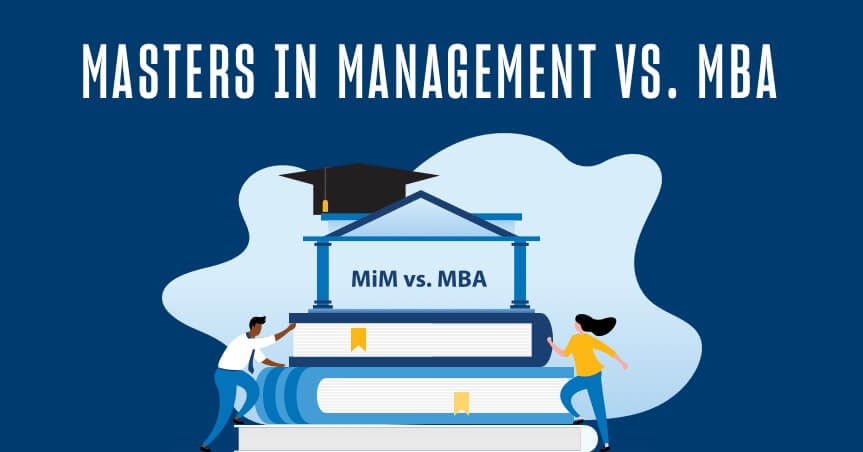Top Questions Asked in an MBA Interview [+Tips & Resources]
Congratulations! You’ve made it to the interview stage of your application to an MBA program, which means that you look great on paper. But now the MBA program interview needs to demonstrate how your presence, your communication ability and your personality will mesh with the instructors and other students of the program.
MBA programs are looking to admit those who can communicate well, work well with others, are dedicated to finding success and are open to learning from their mistakes. How you showcase those qualities during your interview will largely depend on your approach to answering the MBA interview questions — as well as the questions you choose to ask in the interview.
This can be one of the most nerve-wracking experiences of the entire application process, so go in forewarned and forearmed with this guide on what to expect and how to prepare yourself.
8 Questions You Could Be Asked in an MBA Interview
The most important thing to remember about business school interview questions is that there are no “right” answers. That’s because the majority of interviewers will be asking behavior-based questions.
Considered an industry interviewing best practice, behavior-based interviewing focuses on asking questions structured around personal examples from a candidate. Because the possible answers are about the candidate’s past, the interviewer won’t have a specific answer in mind; this helps to avoid situations where the candidates only answer based on what they think the interviewer wants to hear.
During these MBA program interviews, the interviewer will be looking to explore examples of your behavior — things like your work ethic, self-awareness, ability to get along with others, grit in the face of adversity and ethical compass. The interviewer will be looking for specific examples and how they reflect your character and your behavior, which are details that aren’t easily made up on the spot.
However, if you go in with an idea of what the MBA interview questions will be, then you’ll have more time to think of examples and how to position yourself in the best possible light. Here are eight of the most common MBA interview questions.
- “Tell me about yourself and an event that changed your life.”
Also sometimes framed as, “Talk about yourself,” this question is often used as an ice-breaker, a way of making introductions and setting the tone of the interview. The trap here is that there’s an opportunity to ramble and try to cram in everything all at once. This is meant as more of an overview, so keep it short. Consider it as an updated version of your personal elevator pitch.
If the interviewer also asks about a life-changing event, think of something that will tie into some of your other answers (which we’ll get to below). Maybe it’s a moment where you had to show leadership, or a mistake that taught you something important. The more it can relate to your professional goals during the MBA program interview, the more it can demonstrate your character and your capabilities.
- “Why are you pursuing this degree?”
You likely already answered this in your application — so why is it being asked again? The interviewer likely wants to get a better idea of why you’re applying at this particular point in your career. This is your opportunity to show that this is a commitment that you’re truly invested in, or that this is something that you’ve been steadily working towards.
Try not to get caught in the weeds in talking about everything that brought you to this point. Briefly walk through your past experiences and why your future career plans make this the right move. - “Why are you interested in our program?”
Again, this is something that you likely already addressed in the initial application. This is meant for the interviewer to get an idea of how much you’ve invested into learning about the program and — more importantly — how it aligns with your experience and future plans.
Think about the elements of the program that specifically interest you. This could be a specific field of study, the way the capstone project is designed, the chance to work with certain faculty, etc. Ideally, you are genuinely excited about joining this program, so focus on the elements that actually excite you. - “How have you demonstrated leadership and why did people follow you?”
There are two possible trip-ups here. The first is that you may believe that you’ve never actually been in a “real” position of leadership, and so you feel you don’t have a strong response to this MBA interview question. The other is that, because you’ve had extensive leadership experience, you’re tempted to talk about how great you are and how everyone looks up to you as a leader.
What the interviewer is most interested in here is in gauging your communication skills and critical thinking. They’re looking for examples of times where you’ve listened, responded to and motivated others. They want examples of times when you succeeded in being an effective leader, both in accomplishing something as a group and what you took away from the experience. So even if you’ve never held an “official” leadership position, there are certainly times when you’ve had to be assertive and collaborate with others – talk about that.
If you have had extensive experience, don’t brag. Good interviewers will spot it immediately and aren’t likely to think highly of it. - “What’s a mistake or failure you experienced and how did you overcome it?”
The interviewer isn’t looking for weaknesses, but the question is meant as a way for you to showcase your commitment to self-improvement. Rather than try to be generic about a personal flaw, try to highlight a specific event where you had to demonstrate a positive quality like leadership, innovation or determination. Always try to keep the tone positive: “This is how I turned things around,” or “It’s helped make me a better team player.”
There’s another variation of this common MBA interview question, which is, “Tell me about a time you were faced with a challenge you had never dealt with before and how you worked through that.” This approach is less about addressing a shortcoming you experienced and more about a situation where you fixed a problem or solved an issue. Again, keep things positive. The interviewer is less concerned about that particular solution, and more about your approach to future challenges.
- “Describe any feedback or criticisms you’ve received from friends, co-workers or mentors and how you’ve responded to the feedback”
This can also appear as the infamous “What are your strengths and weaknesses?” question. In either case it’s meant to judge your self-awareness and capability for self-evaluation. Be honest and acknowledge any shortcomings and how you’re addressing them. You’ll want to highlight how you took responsibility for something that fell short of expectations and what you learned from the experience.
As for being asked about your strengths, decide ahead of time on a single trait that positively affects the rest of your abilities and experiences (communication, leadership, innovation, etc). Make that attribute the “theme” of your answers and tie it in where appropriate. - “Describe an ethical dilemma you’ve faced at work.”
This MBA interview question might catch you off-guard if you’re not expecting it. You should not underestimate the importance of business ethics, as it is an increasingly important standard in modern business. Your answer is meant to demonstrate your integrity, trustworthiness and values. Think of an incident that tested you, what led you to make the “right” decision — even if it wasn’t popular or the most efficient — and, more importantly, why you’d make such a decision again. - “What are your short and long term goals?”
This is also sometimes positioned as “Where do you see yourself in five years?” The point of this question is to explain how an MBA — more specifically an MBA from this program — will aid in your professional career. Short term goals should be more specific and attainable, while long term goals can be more general and flexible. There are a lot of directions your answers could go, so sit down ahead of time and outline your answers with the following tips in mind:- Try to align both types of goals with the school’s mission and purpose.
- Find a way to tie your long and short term goals together.
- Include your motivations for pursuing these goals.
- Be ambitious, but remain realistic.
5 Questions You Should Ask in an MBA Interview
One of the last questions an interviewer will ask is if you have any questions for them. The one thing you should never say is “No”! There’s more to learn if you’re truly interested in a program. Asking follow-up questions shows that you’re invested in the program, that you have more to discuss and share and that you’re an active listener.
Don’t choose questions that are easily answered by their admissions materials or website. Do your research ahead of time to answer any questions on matters like course requirements or tuition assistance. Keep your questions open ended; this makes them more conducive to an engaging discussion, which affords you more opportunities to present yourself as a good candidate.
Here are five recommended questions to ask during an MBA admissions interview:
- What do you like most about this program?
- What advice do you have for me to get the most out of this program?
- What changes do you see coming for the program?
- How does this program connect with professional networks and the wider community?
- How does the program develop leadership skills?
If these or any of your pre-planned questions are answered during the interview, think about how you can ask a follow-up question for more details on something that didn’t get fully addressed.
Tips for Nailing the Interview
Not everyone is comfortable with the interview process, and an approach that may work for one person may not work for another. No matter how you feel about interviews, there are a few other things you can do to enter the interview with confidence.
- Be prepared by doing your research on the program and practicing your answers. Even if you feel more comfortable with “winging it” and answering in the moment, it’s better to have some “go-to” answers that you can draw upon and elaborate on.
- Be yourself, don’t lie and remember there are no “right” answers. The MBA program interview is about you, which means highlighting your accomplishments and showcasing your character. You can always position yourself in the best light, but don’t try to invent or over-embellish your accomplishments — those kinds of answers can trip you up.
- Prepare personal examples to reference and share, and make sure they’re varied. The point of knowing the types of questions to expect beforehand is to think through various examples and decide which ones you’ll want to focus on. You also don’t want to keep going to the same well, so have at least three to four different examples ready to draw upon.
- Always focus on the positive. Even in answering so-called “negative” questions about your weaknesses or mistakes, you want to accentuate the positive. Focus on how you grow, how you help others, how you adapt and how you find success in failure. MBA programs are looking for candidates that will contribute to their programs and enhance their standing and legacy — show how you’re a valuable asset.
Note that many of our suggestions are applicable to interviews for other master’s programs as well. If you’re looking to advance your career as an entrepreneur or innovator in the tech space, then you could be exactly the candidate we’re looking for.
The University of San Diego’s Master of Science in Innovation, Technology and Entrepreneurship (MITE) is designed for professionals interested in joining tech startups, seeking to innovate new initiatives as an intrapreneur or starting a career as an entrepreneur in a technology-related field.
We know the questions to ask, because we’re always looking for motivated and creative individuals. Contact us to learn more about the ways the MITE program helps future leaders, startup creators and innovators succeed.
Resources to Help You Prep for Your Interview
- The number one resource to aid in your MBA interview preparation is always going to be the program’s website. Review their mission statement, look up their faculty members and read through their blog posts. The more you know about how the program positions itself, the better you’ll be able to craft your answers.
- When thinking about how to give specific examples, use the STAR method:
- Situation — Set up the who, what, when, where, why and how of the scenario.
- Task — Explain the specific challenge(s) at hand, what needed to be done and what your responsibilities were.
- Action — How you set about completing the task, the important steps, skills you used and how you collaborated with others.
- Result — Focus not only on the specific outcome, but what you took from the experience.
If you’d like to read more about the STAR response technique, see this in-depth guide from Indeed.
- Keep a list of the sample questions handy to workshop them over time and to review as needed. You don’t have to do everything all at once; taking time to develop and revise your answers will ensure that you’re not overlooking anything important and allows you the opportunity to reframe different answers.




